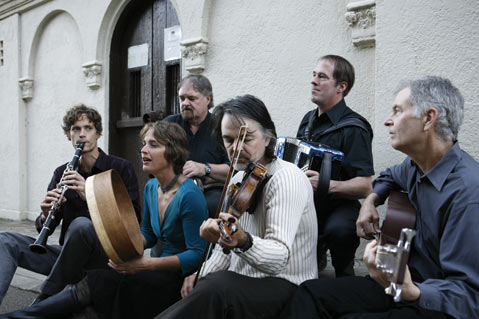¡Viva el Arte! and Other World Music
Other Music Arrives in Force

¡VIVA EL ARTE! As Cathy Murillo detailed in her Independent cover story recently, something fairly remarkable has snuck into Santa Barbara’s cultural calendar in the last few years, via the unique UCSB-sponsored series ¡Viva el Arte de Santa Bárbara! For any of us who have latched onto its splendors—as a portal into musical terrain essentially hiding in plain sight, just south of the border—the series handily earns its exclamation marks.
Tapping the rich folkloric vein of mostly Mexican regional music styles, including generous doses of top-notch mariachi, splashes of brassy banda, and other styles, this series offers a sturdy roster of free-to-the-public concerts, at Isla Vista Theater, Guadalupe’s Royal Theatre, and the Marjorie Luke Theatre on consecutive weekend nights. The Luke’s two performances on Sundays have been my point of contact, and a fine, fitting house it is. Educational encounters occur in the margins, and each of the hosting venues collaborates as a full partner, allowing the project to live and thrive.
For anyone as yet unhip to the series’ pleasures, this week’s guest is a very fine place to start: Grupo Arpex is a proud proponent of the rarely heard conjunto de arpa grande, straight outta Michoacán, and with a heritage going back to the beginnings of the much better-known and widely practiced mariachi. Formed 10 years ago by cofounders Miguel Prado Mora (on the “arpa grande,” aka “big harp”) and vihuela player Roman Isabel Ramos Gomez, the musicians decided to dig into the roots of their background. In 2006, the band put out Tierra Caliente, an album of enticing, rootsy Michoacán music on the Smithsonian Folkways label, a sure imprimatur of respect and acknowledgement from a label—and institution—known for celebrating and preserving some of the worthiest “world music” and regional styles.
“Tierra caliente” is both the home turf of the musicians, now based in California’s Central Valley, and also a shorthand description for this ancient, pre-mariachi style. Call Grupo Arpex vintage American music, “world music,” or Mexican regional music, but the sound is a winning one, by whatever category.
WORLDLY WEEKEND, PART TWO: Worldly musical categories get beautifully fuzzy in the case of another recommended concert this weekend, as the Bay Area-based Janam settles into the compact but warm and wondrous MultiCultural Center (MCC) Theater at UCSB on Saturday night. Check out their Myspace page; the genre description lists “Americana/Acoustic/Roots,” but that doesn’t exactly tell the story.
To plot a rough stylistic course, this fine group goes on a world tour of Eastern Europe—particularly the Balkans—and strains of Appalachian music, with no cultural jet lag. A group featuring accordion, hand drums, oud, clarinet, and other tools, the music all comes together in an organic way, however varied the influences. Founded by the engaging vocalist Juliana Graffagna, formerly singer and director of the well-known vocal group Kitka, Janam has released a fascinating album and promises to deliver some enchanting cross-cultural goods at the MCC. With these musical enticements from outside the usual North American music parade, we have two great excuses to take a break from the Santa Barbara International Film Festival’s clutches.
CLASSICAL WARES AND FARE: Thus far, 2011’s muse of classical music in Santa Barbara has been busy and generous, especially for those of us who love some 20th-century sounds in their diet. For all the goodness heard and seen at the Granada in its new, post-$50 million renovation life, classical music of the past century has been mostly a genre non grata in this house. Last week, though, we relished the sight, sound, and motion (dance-wise) of the Santa Barbara Symphony’s realization of Aaron Copland’s Appalachian Spring suite—possibly the 20th century’s feel-good masterpiece—with new homey-sweet choreography by William Soleau for the State Street Ballet. The next night, the grand little Los Angeles Chamber Orchestra, led by guest maestro Ignat Solzhenitsyn, upped the ante with Witold Lutosławski’s gutsy yet somehow poignant Musique funèbre (Funeral Music), in homage to Béla Bartók. Encore.



